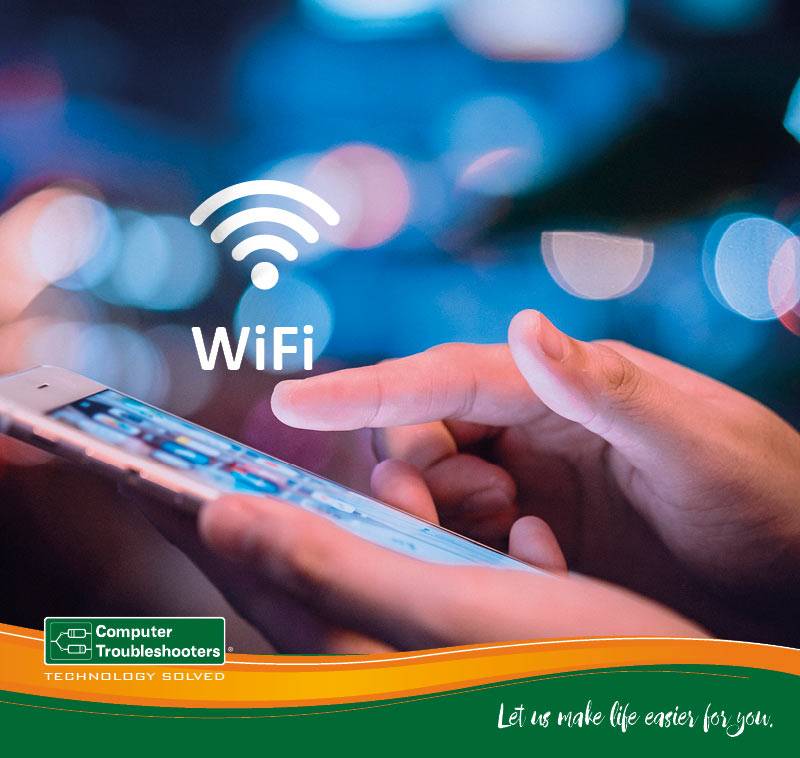 22 Feb 2019
22 Feb 2019These days free Wi-Fi is commonly available in Hotels, Coffee Shops, Airports, Restaurants, Libraries etc. According to a survey by the Identity Theft Resource Centre (ITRC), 75% of respondents said they use Public Wi-Fi. However, the real danger is that most people don’t appreciate the inherent security risks in using Public Wi-Fi.
Common Sense is your friend.
While you wouldn’t give a stranger your EFTPOS card and pin number, it’s surprising the number of people who log in to their bank whilst on Public Wi-Fi. Similarly, many are transferring written reports or business documents back to someone at the office to meet a deadline.
Just because some free Wi-Fi connections ask you to login in with a password, this doesn’t make the connection secure. This often lulls the user into a false sense of security.
Common Sense says - Think about the data you are about to send and the effect it would have if an electronic eavesdropper got their hands on your banking login or that confidential report. Aim to avoid sending or receiving valuable or sensitive information when connected.
Hackers like to get on the same network as many people to perform their cybercrime. Public Wi-Fi is easy meat for them.
Connect Securely.
One tactic commonly used by hackers is to create fake Wi-Fi networks or hotspots. You may well be in an Airport wanting to use Wi-Fi while killing time waiting for a flight. A hacker is not going to call their wireless network FAKE_WI-FI. More likely they might call it FREE_AIRPORT_WIFI because everybody likes something for free. If you join such a fake hotspot then the hacker can gain access to your personal information and they can possibly access your files through file sharing. If in doubt ask the staff which connection you should be using, or simply don’t connect.
Ensure once connected, that you disable File sharing. This limits access to your files
Make sure any websites you visit have HTTPS: at the start of its URL.
Use a VPN (Virtual Private Network).
VPNs create a secure tunnel over the internet. This encrypts all the data you transmit and hackers will not be able to access this information.
Not all VPNs are legitimate. It’s a case of “Buyer Beware” especially the free ones. The best VPNs are the ones your company provide controlled by the company firewall. For example, the author uses one to connect back to his workplace computer when he is overseas so that he can remotely control his regular desktop through a secure tunnel to pay the wages, creditors and do the banking etc.
Turn off Automatic Connection.
To avoid automatically connecting to an insecure Wi-Fi network, disable the auto connect feature on your device. Additionally, when you have finished using the Public Wi-Fi connection we suggest that you select the option to “Forget this network”.
Enable the Firewall.
Enabling the device’s Firewall helps prevent hackers from gaining unauthorised access to your system. The firewall does not always provide complete protection, but it helps significantly.
Use Antivirus.
Most reputable antivirus solutions these days are available for smartphones and tablets as well as laptops. Antivirus will help by detecting any malware that a hacker may try to deploy while he/she has unauthorised access to your device over a Public Wi-Fi network. Another weapon a hacker may try to deploy is a fake antivirus alert. These fakes can cause catastrophic results.
Keep your device’s software up to date.
Reality is that we are living in a world that is facing multiple new threats daily. Consequently, software providers are always releasing patch updates to protect you and to avoid costly security incidents. Ensure your software has been patched with the latest updates and version of the software.
Turn on Two Factor Authentication (2FA)
Consider the usage of two-factor or multi-factor authentication. This makes it very difficult for any hacker as they need access to your second level authentication device such as your phone or your SMS inbox. This is gaining strong acceptance as more services are delivered through the cloud.
Conclusion:
The above tips are the basis for ensuring that you reduce the risks of using a public Wi-Fi and just may result in saving you from becoming a victim of data or identity theft. Most of these tips are simple, easy, relatively inexpensive and reduce the chances of cyber criminals gaining access to your valuable data.
To understand more, please contact your local Computer Troubleshooters OfficeLink: Security Brief Story - Employees who use public wi-fi are playing a game of risk.
